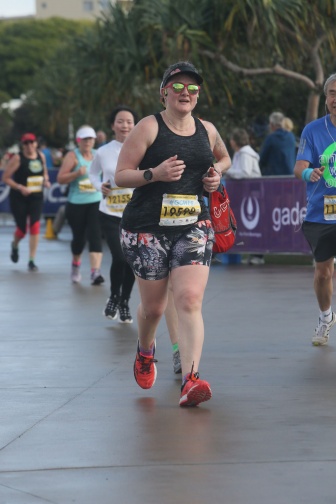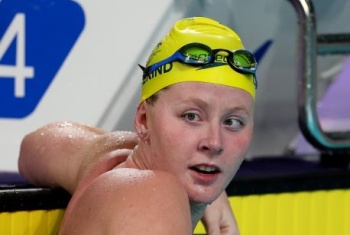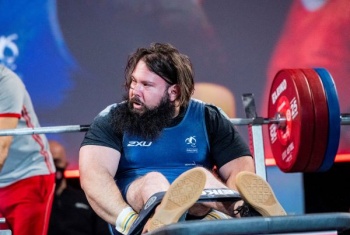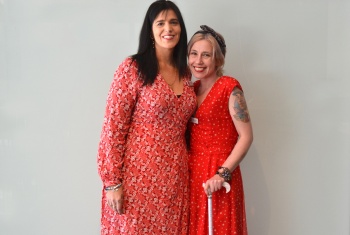After five determined years, Adelaide runner and NDIS participant Emma Archer is about to clock up her 100th parkrun.
It’s a huge milestone for any amateur athlete, but for Emma, it’s also hot on the heels of achieving a significant life goal – completing a gruelling, full-length marathon (42.195km), while also managing debilitating symptoms of multiple sclerosis (MS).
Emma completed the 2020 London Marathon remotely during the global pandemic last year – entering the Guiness Book of Records in the process.
“For me, running a marathon isn’t about saying to anyone I’ve run a marathon, it’s about saying to myself I’m actually bigger than this disease, that it’s not going to stop me, that this is something I always wanted to do, and I can still do this,” said Emma, 41, of Woodville, South Australia.
“When I was first diagnosed, it felt like it was the death of many parts of my life, and who I was as a person.
“In the short term, I lost my career as a midwife, and my independence. It was hard to get around or look after my kids properly. I couldn’t play with them, I couldn’t cut up food for dinner. It was devastating and confronting, and very challenging for the whole family.”
Emma has relapsing remitting MS, an autoimmune disease which affects the central nervous system, causing a wide variety of symptoms which fluctuate, including overwhelming fatigue, severe pain, difficulty walking, numbness, muscle weakness, and lack of muscle control.
Her symptoms make many everyday tasks difficult - even cleaning her teeth properly - let alone running a marathon.
But with support from NDIS providers, as well as her loving family and friends, and medication, Emma has built a new life, which allows her to manage her symptoms, while continuing to do the things she values, including having a career, enjoying her family, and running.
“The NDIS allows me to live my best life,” she said. “It means I have the energy to do things that are important to me, and it means my life is not just about my disease.”
Emma’s NDIS supports include physical therapy and exercise physiology, which help maintain her strength, balance and coordination. Support workers help her with tasks at home, attending events, and on trail runs when there’s a risk of falling.
Her NDIS plan includes important assistive technology, including an electric toothbrush that attaches to her hand, which means Emma can clean her teeth effectively.
And for running, she has a ‘chilling vest’ and ‘magic’ cooling scarves, which help protect her from overheating.
“People with MS can overheat very easily and that brings on all of my symptoms as well as devastating fatigue,” she said. “I couldn’t run without the chilling vest, and I couldn’t afford to buy it without the NDIS.”
After her diagnosis, Emma searched for satisfying work and found a flexible position in the disability sector.
“Work is an important part of who I am, and the NDIS makes that possible,” she said.
Emma is also an active volunteer for several charity organisations, which aim to raise awareness about MS.
“I want to raise awareness of what MS is and what it isn’t – it is life-changing, but it’s not life-ending,” she said.
Emma says her athletic achievements have helped reframe her sense of who she is.
She ran last year’s London Marathon remotely at Semaphore, persevering to the finishing line, despite foot blisters, muscle fatigue and severe exhaustion.
“A marathon is a mountain, and I climbed it, and that feels pretty amazing,” she said.



